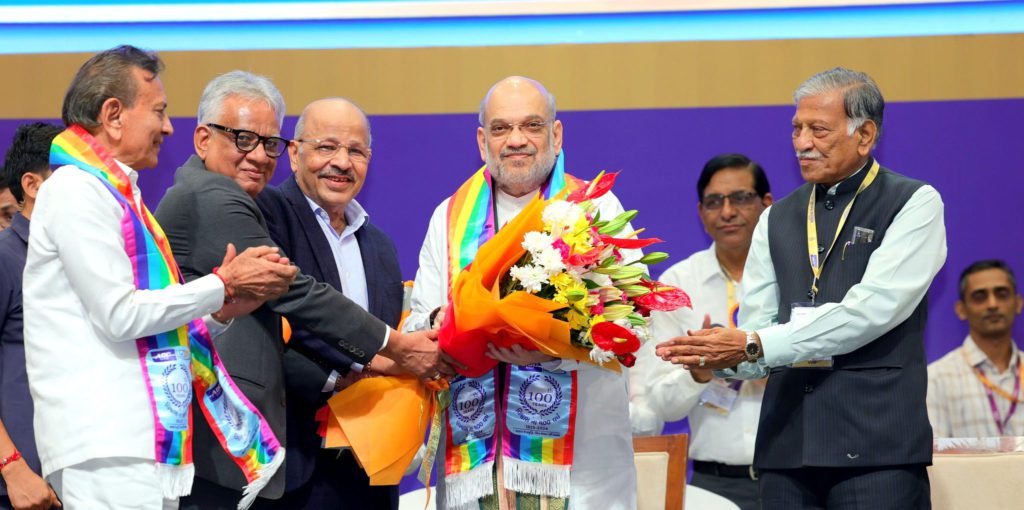Union Home Minister and Minister of Cooperation, Amit Shah, delivered the keynote address at the Centennial celebration of Ahmedabad District Cooperative (ADC) Bank in Gujarat. He was joined by Gujarat Chief Minister Bhupendra Patel and Union Cooperation Secretary Dr. Ashish Kumar Bhutani, along with other prominent dignitaries.
In his speech, Shah emphasized the significance of ADC Bank’s 100-year journey, praising its remarkable growth and contribution to the prosperity of farmers in the Ahmedabad district.
Shah highlighted the cooperative nature of ADC Bank, established in 1925, which began as a small institution in Daskroi and has now become one of the strongest district cooperative banks in the country.
Shah noted its financial success, with nearly zero Non-Performing Assets (NPA), a profit of Rs. 100 crore, and deposits of around Rs. 6,500 crore. He said ADC Bank’s development is a testament to the strength of the cooperative model in India, which promotes collective progress by bringing together small sections of society.
Amit Shah emphasized the critical role the bank has played in uplifting farmers and rural communities over the years, pointing out that in earlier times, farmers often had to mortgage their land to moneylenders due to the lack of institutional financial support. ADC Bank, along with other cooperative movements inspired by Mahatma Gandhi and Sardar Vallabhbhai Patel, helped reverse this trend and empower farmers by providing affordable credit.
He argued that while small countries with populations of 20-30 million may succeed with different economic models, India, with its 1.3 billion citizens, requires a unique approach that balances economic growth with individual well-being and dignity. The cooperative model, Shah said, fits this need by pooling resources and empowering people, especially in rural areas.
Sharing examples from Gujarat, Shah cited Amul as a successful cooperative that has employed 3.5 million women and has grown to a turnover of Rs. 60,000 crore. He also recalled an anecdote of a woman from Banaskantha who received a Rs. 8 million cheque for her dairy work, highlighting the empowering potential of the cooperative movement.
As a former chairman of ADC Bank, Shah reflected on its popular reputation as the “big bank for small people.” He praised the bank for providing a platform for people with limited capital to pool their resources and create prosperity.
He also lauded recent reforms under Prime Minister Narendra Modi’s leadership, such as the creation of the Ministry of Cooperation, which has breathed new life into the cooperative movement. Shah stressed that this decision, along with others taken by the Prime Minister, will be viewed as pathbreaking in the future.
Shah also pointed to ADC Bank’s pivotal role in modernizing cooperative societies across the country, noting that new systems have been introduced to enhance their efficiency. He emphasized that service cooperative societies, backed by government support, are now equipped with access to interest-free loans, warehouses, and the ability to run petrol pumps and gas agencies.
These reforms, according to Shah, will strengthen cooperatives at the grassroots level and further integrate them into India’s rural development framework.
